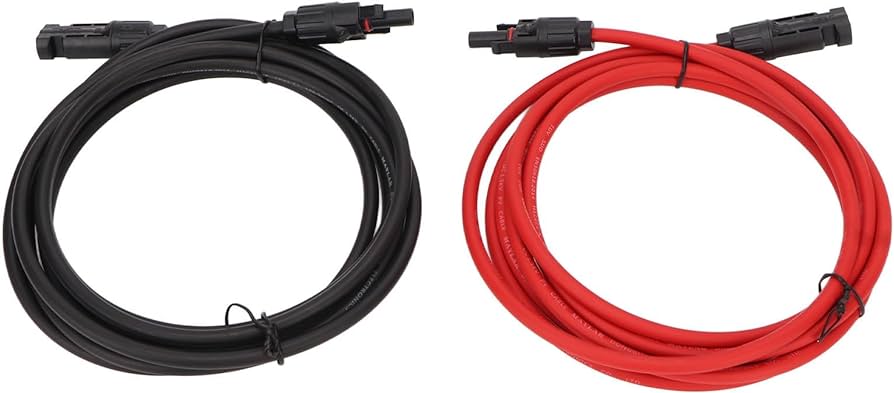The rising global emphasis on renewable energy has led to a significant surge in the adoption of solar power systems. Solar cable extensions play a critical role in enhancing the efficiency, flexibility, and overall functionality of these systems. This article delves into the importance of solar panel extension cable, their applications, and the considerations one should take into account when selecting them.
The Importance of Solar Cable Extensions
Solar cable extensions are essential components of solar power systems, providing the necessary connectivity between solar panels and other system components such as inverters, charge controllers, and batteries. These extensions facilitate the seamless transmission of electricity generated by solar panels, ensuring optimal energy flow and minimizing power losses. As solar installations grow in size and complexity, the need for reliable and high-quality solar cable extensions becomes even more crucial.
Applications of Solar Cable Extensions
- Residential Solar Systems: In residential settings, solar cable extensions enable homeowners to position solar panels in optimal locations, often at a distance from the main power infrastructure. This flexibility allows for maximum exposure to sunlight, increasing energy production and overall system efficiency.
- Commercial and Industrial Installations: Large-scale commercial and industrial solar installations require extensive wiring to connect numerous solar panels across vast areas. Solar cable extensions ensure that these systems can be effectively interconnected, providing reliable power to support various business operations.
- Off-Grid and Remote Applications: In remote locations or off-grid systems, solar cable extensions are indispensable. They allow for the placement of solar panels in areas with the best sunlight exposure while connecting them to power storage and distribution units located elsewhere. This is particularly beneficial for powering remote communication towers, agricultural operations, and isolated communities.
Key Considerations for Selecting Solar Cable Extensions
When choosing solar cable extensions, several factors should be considered to ensure optimal performance and longevity:
- Cable Type and Material: Solar cables are typically made from copper or aluminum. Copper cables are preferred due to their higher conductivity and durability, although they are more expensive than aluminum alternatives. It’s essential to select cables that are specifically designed for solar applications, as they are built to withstand harsh environmental conditions.
- Cable Size and Length: The size (gauge) of the cable affects its current-carrying capacity and resistance. Thicker cables have lower resistance and can carry more current, reducing power losses. The length of the extension should be carefully measured to avoid excessive voltage drops, which can impact system efficiency.
- Insulation and Protection: Solar cable extensions are exposed to various environmental factors such as UV radiation, temperature fluctuations, moisture, and mechanical stress. High-quality insulation materials, such as cross-linked polyethylene (XLPE), provide superior protection against these elements, ensuring the cables remain functional and safe over their lifespan.
- Connectors and Compatibility: The connectors used in solar cable extensions must be compatible with the existing system components. Reliable and secure connectors prevent energy loss and potential hazards. Commonly used connectors in solar systems include MC4 connectors, which are known for their durability and ease of use.
- Certification and Standards: Ensure that the solar cable extensions meet relevant industry standards and certifications, such as UL (Underwriters Laboratories) and TUV (Technischer Überwachungsverein). Compliance with these standards guarantees the cables’ safety, reliability, and performance.
Conclusion
Solar cable extensions are indispensable components that significantly enhance the functionality and efficiency of solar power systems. By enabling flexible panel placement and ensuring reliable connectivity, these extensions empower both residential and commercial solar installations to achieve optimal energy production.
